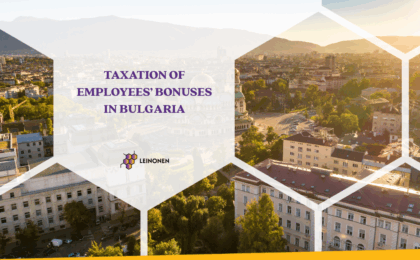Finland is one of the most sparsely-populated countries in the EU. The most important sectors of Finland’s economy in 2014 were public administration, defense, education, human health and social work activities (22.2 %), industry (19.8 %) and wholesale and retail trade, transport, accommodation and food services (16.5 %).
Principal cities are Helsinki (population 561,000), Espoo (232,000), Tampere (204,000), Vantaa (187,000), Turku (180,000) and Oulu (129,000).The capital of Finland is Helsinki, situated on Finland’s southern coast. Approximately one million people live in the capital and surrounding area of Helsinki.
Paper, pulp and wood, plus metal and engineering products have traditionally been the backbone of Finland’s economy. In the 1990s, these industries were overtaken in importance by electronics, with the Finnish mobile phone company Nokia taking the lead.
Taxation in Finland
Income taxation – progressive
Corporate income tax – 20%
VAT rates
| General rate of VAT, effective for most goods and services | 24 % |
| Food, animal feed, restaurant services, meal catering services | 14 % |
| Books, medicine, services relating to physical exercise and sports, movies, entrance to cultural events and to entertainment events, transport of passengers, accommodation, and TV licenses. | 10 % |
Business ethic
Finns value trust and honesty. It is important to be punctual so as not to get a reputation for being unreliable. Most of Finns speak fluent English and this is especially true in the business world.
Foreign business in Finland
Reporting obligations in force for employees staying longer than 6 months in Finland
If a foreign company post an employee in Finland for more than 6 months, the company must file an Employer Payroll Report at the end of the year, and report all wages paid.
Social security obligations
Posted employees with A1 Certificate
When foreign companies send employees to Finland from their domicile EU countries the social security authorities of that country may give the employee an A1 certificate of posting. This means that the employee is still covered by home-country social security. As long as the certificate of posting A1 is valid, no social security contributions have to be paid in Finland.
Employees without a document, establishing posted employee status, must be paid through the payroll system of Finland.
Do you know: Finnish soldiers showed courage and heroism in the capture of Sofia and Plovdiv through the Russo-Turkish War (1877-1878).
For detailed information, or a service offerContact Our Office. You will receive our reply within the same day.




